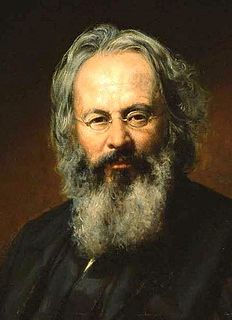A Quote by Thomas Jefferson
I am an Epicurean. I consider the genuine (not the imputed) doctrines of Epicurus as containing everything rational in moral philosophy which Greece and Rome have left us.
Related Quotes
Under theocracies and other authoritarian regimes, the rulers are the moral authorities. Under genuine democracy some basic values are entrenched in the legal system, which is expected to be under democratic vigilance, and others are left to the person or the group, which ideally debate moral problems in a rational, free and cooperative manner.
The United States, or the American Republic, has a mission, and is chosen of God for the realization of a great idea. It has been chosen not only to continue the work assigned to Greece and Rome, but to accomplish a greater work than was assigned to either. In art, it will prove false to its mission if it do not rival Greece; and in science and philosophy, if it do not surpass it. In the State, in law, in jurisprudence, it must continue and surpass Rome.
One could say that what differentiates ancient from modern philosophy is the fact that, in ancient philosophy, it was not only Chrysippus or Epicurus who, just because they had developed a philosophical discourse, were considered philosophers. Rather, every person who lived according to the precepts of Chrysippus or Epicurus was every bit as much a philosopher as they.
When one begins to reflect on philosophy—then philosophy seems to us to be everything, like God, and love. It is a mystical, highly potent, penetrating idea—which ceaselessly drives us inward in all directions. The decision to do philosophy—to seek philosophy is the act of self-liberation—the thrust toward ourselves.
I think moral philosophy is speculation on how we ought to live together done by people who have very little clue how people work. So I think most moral philosophy is disconnected from the species that we happen to be. In fact, they like it that way. Many moral philosophers insist that morality grows out of our rationality, that it applies to any rational being anywhere in the universe, and that it is not based on contingent or coincidental facts about our evolution.
Leibniz accepted the argument that there must be indestructible simple entities if there is to be a complex world, but Epicurean morals and politics and anti-theology dismayed him. His 'monadology' which said that the true atoms of nature were unextended 'living mirrors,' was an imaginative and beautiful system, and even in many ways more modern than Epicurean atomism, than Epicurean atomism, but there was a reactionary aspect to it.
The task of a philosophy of photography is to reflect upon [the] possibility of freedom - and thus its significance - in a world dominated by apparatuses; to reflect upon the way in which, despite everything, it is possible for human beings to give significance to their lives in the face of the chance necessity of death. Such a philosophy is necessary because it is the only form of revolution left open to us.

































